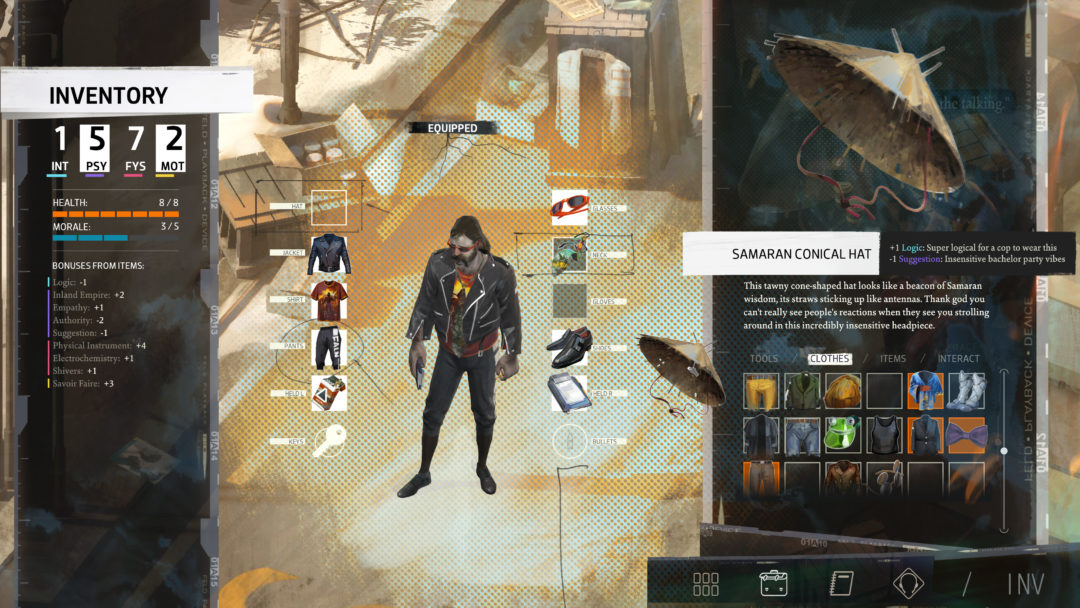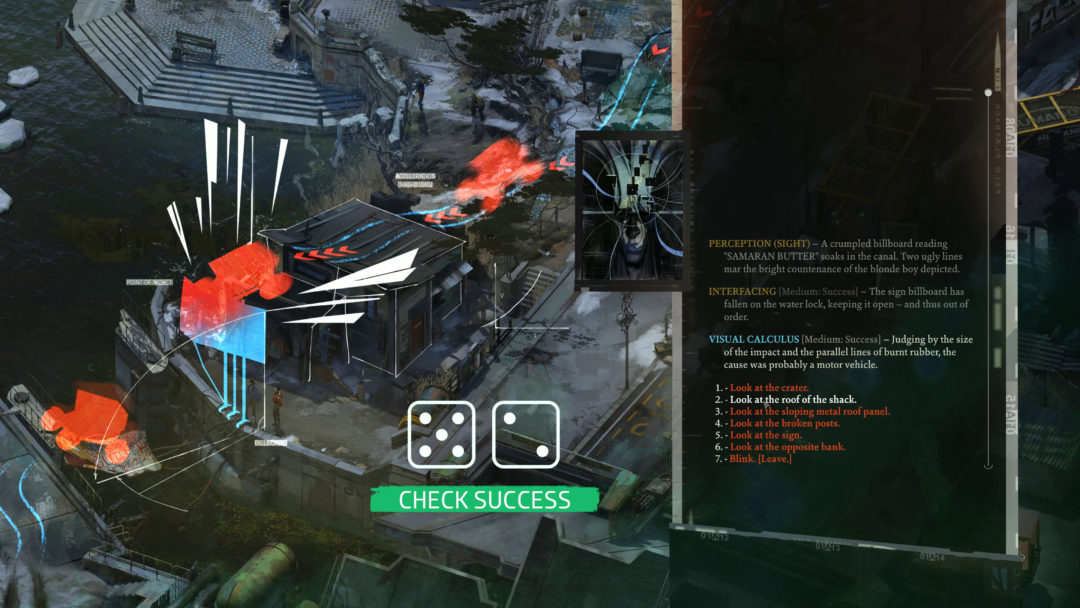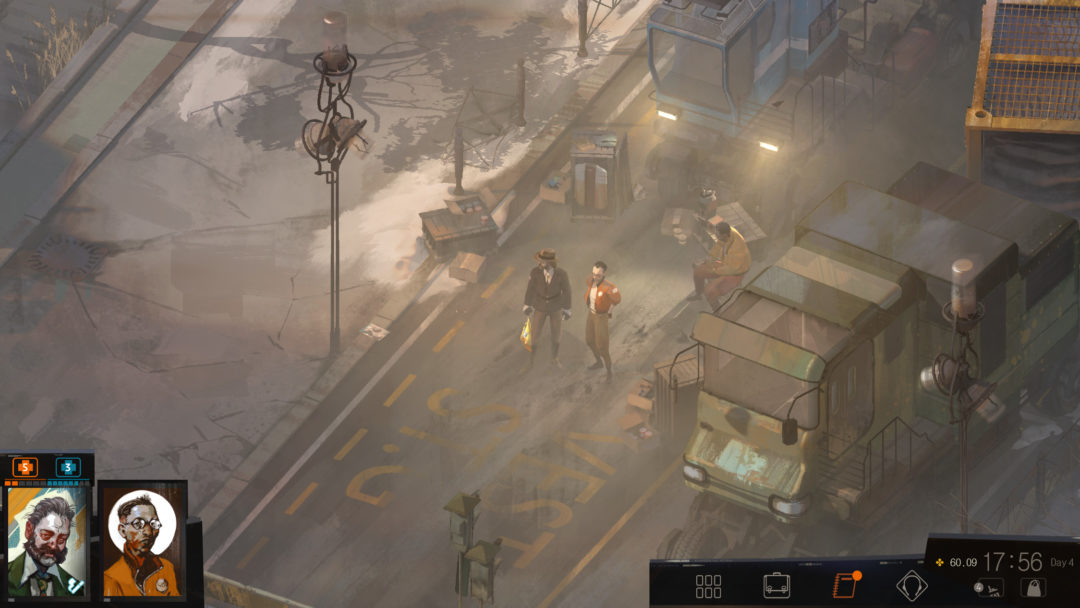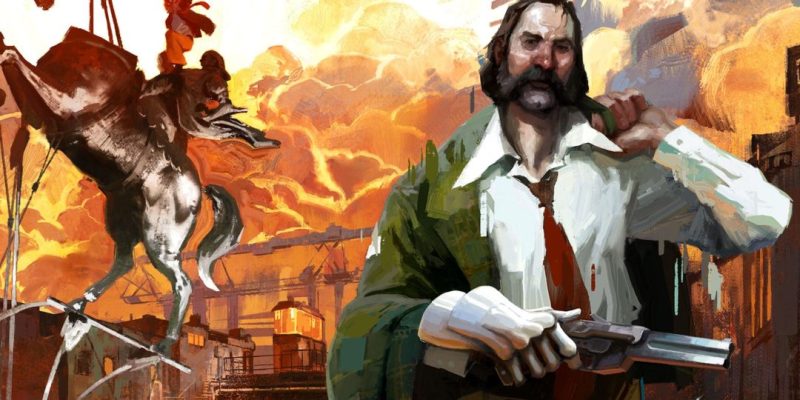ZA/UM spent five years developing Disco Elysium, but the ideas behind the extremely ambitious CRPG date back much further. The game shares a setting with lead designer and writer Robert Kurvitz’s 2013 novel Sacred and Terrible Air, which in turn was inspired by 10 years of world-building work done through pen-and-paper role-playing games.
“I always knew I wanted to build worlds,” Kurvitz said. “We wanted to do something truly strange and ridiculous. Our goal was to make a world to end all worlds, and that’s what I’ve been doing.”
The members of the small Estonian studio are all high school dropouts who had no prior game development experience before working on Disco Elysium. Kurvitz, who is 35, said they spent most of their youth smoking cigarettes, wandering the gray Eastern European architecture, and playing Dungeons & Dragons. They started with a bootleg Finnish copy of the tabletop role-playing game but quickly were inspired to start coming up with their own rules and setting. Disco Elysium has drawn numerous comparisons to the Dungeons & Dragons-based CRPG Planescape: Torment, and Kurvitz said that’s no accident.
“The two biggest favors anyone’s ever done me in my life are the political education from Estonian punk bands and what (lead designer and writer) Chris Avellone did with Planescape: Torment. Punk bands got me through my life until I was 27 or 28, and Chris Avellone’s contributions to video games got me past 29. I don’t think I would have had the imagination to think you could be so ambitious and literary in video games.”

Kurvitz wrote 1 million words for the game, which he said can be played for 120 hours without uncovering all its secrets. In order to keep his interconnecting narrative straight, he decided to give up all vices including drinking, smoking, and “other things that people in Eastern Europe sometimes do.” He watched his diet, exercised regularly, and monitored his anxiety levels to become “a warrior monk of video game development.”
That asceticism may seem surprising given how big a role drugs and alcohol play in Disco Elysium, starting with the main character, an alcoholic suffering from memory loss. While Kurvitz said his team has “intimate physical knowledge of mind-altering substances,” he wanted to use the game in part to warn about the dangers of alcohol abuse.
“It starts out as a kind of party joke,” he said. “Basically you wake up on the floor in the Dude, Where’s My Car? of video games. But to write the game with the humanitarian ambition we wanted, it couldn’t remain a joke. In RPGs, usually the amnesiac character has a kind of curse cast upon them and a dark shadow hunting them, and ours was alcohol.”
Another drug Kurvitz has been avoiding is reading reviews of his work. He said he learned how addicting the mix of positive and negative feedback could be when he published his novel, comparing it to rats that get hooked on cocaine in lab trials.

“I read reviews in French and Dutch, which are languages I don’t know and I don’t understand, so I can imagine what they might be saying, but English reviews I don’t read because I need to protect myself a bit,” he said. “I hear they are nice, and we are incredibly grateful.”
Disco Elysium released on Oct. 15, but Kurvitz isn’t resting yet. He’s currently working on porting the game to Xbox One and PlayStation 4 next year and translating it into Chinese and various European languages. He’s also focused on an English translation of Sacred and Terrible Air that will be released next year, and he has plans for an expansion and full sequel for Disco Elysium.
“We have an insanely ambitious list of projects we want to make in the Elysium setting,” he said. “The last one I want to make, when I’m 50 or 60, that I want to absolutely go crazy on and throw out all commercial considerations and get this as conceptual as possible, is the tabletop setting. The working title for the tabletop setting is You Are Vapor. It will be a really, really, crazy pen-and-paper game.”
Next year, the team also plans to release a manifesto sharing their cultural ethos. Kurvitz said ZA/UM is less a studio and more a cultural movement in the vein of Dadaism or Fluxus, and they’re just using video games as their medium rather than theater or painting. The group shares a passion for ambitious humanitarian culture and a hatred of elitism. They’re also self-identified nerds who draw as much inspiration from 19th century realist novels as they do from Baldur’s Gate II.

“Up until this moment, no one has given a damn about us,” Kurvitz said. “There’s no point in releasing a manifesto into obscurity. I guess we have a tough job of writing one up in front of us.”
Video games are an ideal medium for the group because they combine multiple artistic disciplines but have a particularly large reach. But Kurvitz said he hasn’t been able to enjoy other video games for the past five years. Instead he’s turned to tabletop games like Kingdom: Death Monster (He dreams of meeting the game’s designer, Adam Poots, so he can share his monster ideas.) and Fantasy Flight’s Arkham Horror.
“When you make video games all day long, you can’t really play them anymore,” he said. “They remind you too much of your own work and you get jealous of good ideas. Board games are my refuge now. I think in board games, where budgets are much lower, way more innovation is being done now than in video games, especially in game mechanics. The things they do with storytelling are wonderful. Some people have told us that Disco Elysium has a kind of board game ethos and approach and that’s a huge compliment.”
Kurvitz said that he hopes Disco Elysium’s success will inspire other game developers to pursue more ambitious projects.
“It is sometimes inconceivable to fans of video games why developers don’t shit mouth each other like musicians on Twitter,” he said. “Once you develop a video game you have an undying respect for others that do the same thing. You’re all in the same boat. I don’t think there’s much to criticize in what already is, but I just think so much more is possible, especially in RPGs.”
